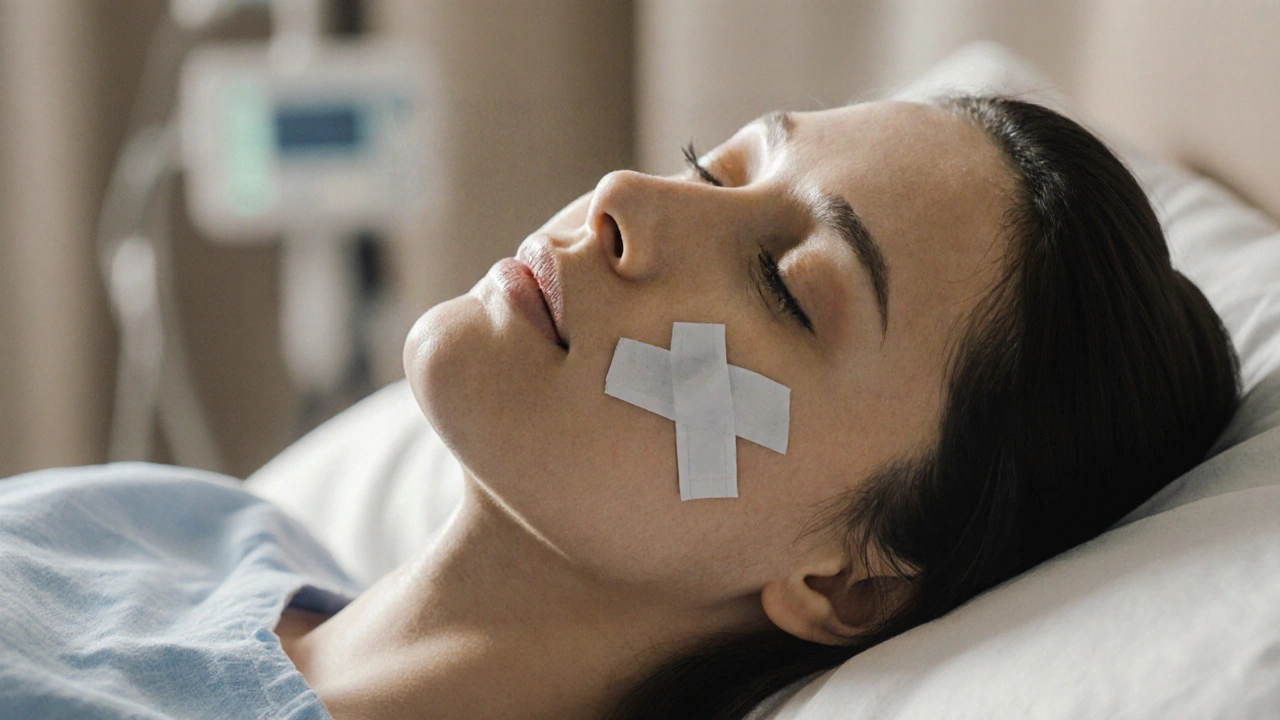Zákazy po operaci: Co nesmíte dělat po chirurgickém zákroku
When you undergo a dental operation, especially something like an operace čelisti, chirurgický zákrok na opravu příkusu nebo přesunutí kostí čelisti, your body doesn’t just need rest—it needs clear rules. These zákazy po operaci, seznam činností, které můžou způsobit zpoždění hojení nebo infekci aren’t suggestions. They’re your safety net. Skip them, and you risk swelling, bleeding, or even losing the results of the surgery. The same applies to smaller procedures—like tooth extraction or implant placement. What you do (or don’t do) in the first 48 hours makes all the difference.
One of the most common mistakes? Drinking through a straw. Sounds harmless, right? But the suction can rip open the blood clot that’s forming in the socket. That’s when dry socket happens—excruciating pain, bad taste, and weeks of recovery. Same goes for smoking. Nicotine cuts off blood flow to the healing tissue. Even chewing gum too soon can mess with stitches or implants. And don’t even think about spicy food or hot drinks. They don’t just burn—they trigger inflammation. Your mouth is a wound. Treat it like one.
What about physical activity? Lifting heavy bags, running, or even intense cleaning? All of it raises your blood pressure and can cause bleeding. You don’t need to lie still for days, but avoid anything that makes your heart race for at least 2–3 days. And yes, even sneezing or coughing hard can be a problem if you’ve had surgery near the sinuses. That’s why your dentist tells you to keep your head elevated—even while sleeping. It’s not about comfort. It’s about keeping swelling down and blood where it belongs.
Hygiene matters too. You can’t brush right away near the surgical site. But you also can’t ignore it. Rinsing with salt water is the gold standard. It cleans without disturbing. Mouthwashes with alcohol? Avoid them. They sting, dry out tissue, and delay healing. And never use a toothpick. Ever. Use a soft brush, gentle motions, and let your body do the work. If your dentist gives you a special rinse or gel, use it exactly as told. No shortcuts.
These zákazy po operaci, seznam činností, které můžou způsobit zpoždění hojení nebo infekci aren’t random. They’re based on decades of clinical experience and real patient outcomes. A 2022 study from the Czech Dental Association showed that patients who followed post-op instructions had 73% fewer complications. That’s not a statistic—it’s your future. You’re not just avoiding pain. You’re protecting your investment. Whether it’s a simple extraction or a full rekonvalescence, délka a kvalita obnovy po chirurgickém zákroku, skipping the rules means paying later—in pain, time, and money.
And don’t forget: if something feels wrong, don’t wait. A sudden spike in pain, fever, or foul taste isn’t normal. Call your dentist. Don’t google it. Don’t wait till morning. Your recovery is personal. It’s not a one-size-fits-all guide. What works for one person might not work for you. That’s why your clinic gives you individual instructions. Follow them. Ask questions. Write them down. Tape them to the mirror.
Below you’ll find real stories and practical advice from patients who’ve been through this. Some learned the hard way. Others got it right—and saved themselves weeks of discomfort. Whether you’re preparing for surgery or already in recovery, these posts give you exactly what you need: no fluff, no theory, just what works.
Estetické fazety: Jak zvládnout pooperativní péči pro ideální výsledek
Pooperativní péče po estetických zákrocích rozhoduje o výsledku. Zjistěte, co dělat a co vyhýbat, aby jizvy byly minimální, otoky zmizely a výsledek trval.
Číst více